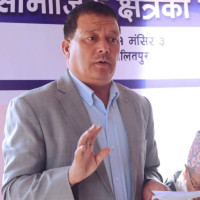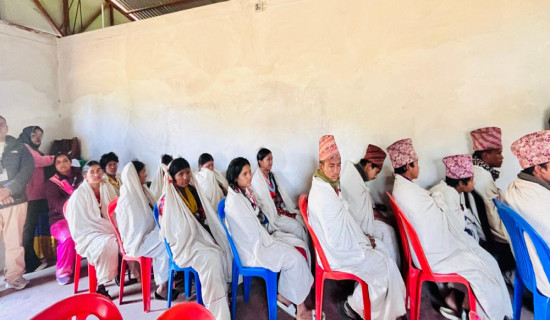- Wednesday, 7 January 2026
Politics, climate conspire as Tigris and Euphrates dwindle
Dawwayah, Iraq And Ilisu Dam, Turkey, Nov. 18: Next year, the water will come. The pipes have been laid to Ata Yigit’s sprawling farm in Turkey’s southeast connecting it to a dam on the Euphrates River. A dream, soon to become a reality, he says.
He’s already grown a small corn patch on some of the water. The golden stalks are tall and abundant. “The kernels are big,” he says, proudly. Soon he’ll be able to water all his fields.
Over 1,000 kilometers (625 miles) downstream in southern Iraq, nothing grows anymore in Obeid Hafez’s wheat farm. The water stopped coming a year ago, the 95-year-old said, straining to speak.
“The last time we planted the seed, it went green, then suddenly it died,” he said.
The starkly different realities are playing out along the length of the Tigris-Euphrates river basin, one of the world’s most vulnerable watersheds. River flows have fallen by 40% in the past four decades as the states along its length — Turkey, Syria, Iran and Iraq — pursue rapid, unilateral development of the waters’ use.
The drop is projected to worsen as temperatures rise from climate change. Both Turkey and Iraq, the two biggest consumers, acknowledge they must cooperate to preserve the river system that some 60 million people rely on to sustain their lives.
But political failures and intransigence conspire to prevent a deal sharing the rivers.
The Associated Press conducted more than a dozen interviews in both countries, from top water envoys and senior officials to local farmers, and gained exclusive visits to controversial dam projects. Internal reports and revealed data illustrate the calculations driving disputes behind closed doors, from Iraq’s fears of a potential 20% drop in food production to Turkey’s struggles to balance Iraq’s and its own needs.
“I don’t see a solution,” said former Iraqi Prime Minister Haidar al-Abadi.
“Would Turkey sacrifice its own interests? Especially if that means that by giving more (water) to us, their farmers and people will suffer?”
A FARMER’S DREAM
Turkey has been harnessing the river basin with a massive project to boost agriculture and generate hydroelectricity. Under its Southeast Anatolia Project, or GAP by its Turkish acronym, it has built at least 19 dams on the Euphrates and Tigris and several more are envisaged for a total of 22.
It aims to develop the southeast, long an economic backwater and the wellspring of the Kurdistan Worker’s Party, or PKK, a Kurdish separatist movement that Ankara considers a terrorist organization.
For the farmer, Yigit, the project will be transformative.
Until now, his reliance on well water only permitted half his land to be irrigated.
But in June, the irrigation pipes finally reached his farm in Mardin province. Next year, his entire 4,500 acres will be watered via the Ataturk Dam on the Euphrates River.
Lower water availability forced a revision in the area that GAP will irrigate, down to 1.05 million hectares, from an original 1.8 million. Half the reduced goal has been met. The rest depends on how quickly authorities can install infrastructure linking villages to the dams.
Farmers benefitting from GAP must use advanced irrigation techniques that Turkish authorities say use two-thirds less water.
But for an anxious Iraq, every drop of water diverted for irrigation means less downstream.
Still, in Yigit’s world, the future is finally bright.
“Next year, the canals will be open.” (AP)

















